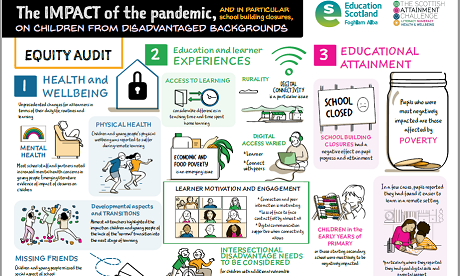Just because the World Health Organisation (WHO) says the Covid-19 health emergency is over, it doesn’t mean everything’s OK.
Far from it. It’s still a global health and welfare threat, WHO officials say.
We can expect the same devastating health and social consequences will continue to plague us. The virus keeps evolving and spreading.
Many vulnerable communities around the world remain unvaccinated. This raises the risk of death and ill health.
As Dr Mike Ryan from WHO’s Health Emergencies Programme says: “There’s still a public health threat out there.”
He says WHO sees that every day in terms of the way the virus is evolving, its global presence and continued vulnerabilities in our communities.
These are “societal vulnerabilities, age vulnerabilities, protection vulnerabilities, and many other things,” he says.
Children are particularly at risk. Save the Children is very concerned.
Governments across the world must give children’s health, education and protection greater priority now the global emergency is over, Save the Children says.
Dr Zaeem Haq, Save the Children Global Medical Director, says while WHO’s announcement is a “crucial milestone”, the virus is here to stay.
There are still enormous challenges facing millions of children worldwide.
“Over the past three years, COVID-19 turned children’s lives upside down.
“Hundreds of millions of children are still facing the effects of the pandemic every day and will likely continue to do so for years to come.
“COVID-19 and the resulting lockdowns, global economic shutdown and disruption to services brought on an unprecedented crisis for children, putting their physical and mental health, education, protection and economic wellbeing in jeopardy.
“This, combined with the effects of conflicts and the climate crisis, exacerbated existing inequalities and hit the most marginalised children the hardest.”
He gives some nasty statistics.
An estimated 100 million additional children were driven into poverty and the risk of hunger increased worldwide.
Over 1.5 billion children had their education disrupted
Children suffered an increase in violence when schools were closed.
An estimated 10.5 million children lost a parent or caregiver to COVID-19.
The pandemic unleashed a global mental health crisis, with eight percent of children reporting an increase in negative feelings as a result.
Without urgent global action, years of progress for children will be permanently reversed. This will put the United Nations’ 2030 Sustainable Development Goals beyond reach, says Haq.
“It’s vital that all governments prioritise and invest in children’s physical and mental health, nutrition, wellbeing, protection and learning.
“They must also commit to invest in early outbreak detection systems and robust pandemic preparedness, strengthen health systems and ensure universal access to healthcare.
“The announcement by the WHO serve as a stark reminder that we live in a highly unequal world, one that is failing to protect children and their rights. Global leaders must work together to prioritise and finance the work that must be done.”
Source
Additional readingNews category: Palmerston, World.




